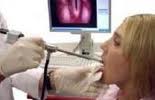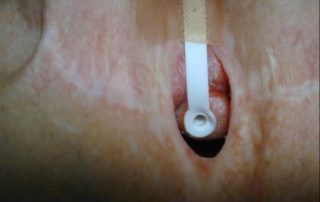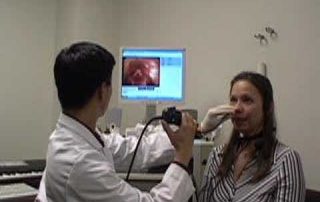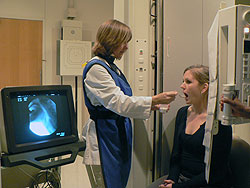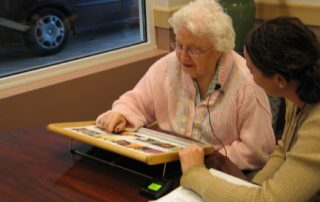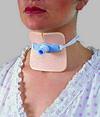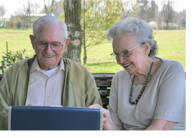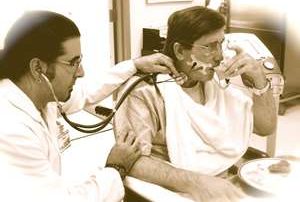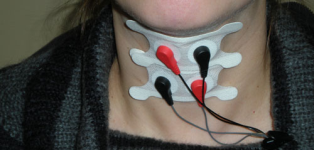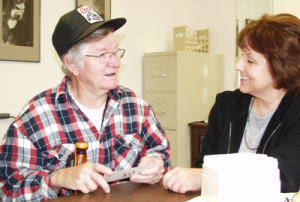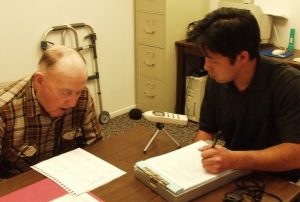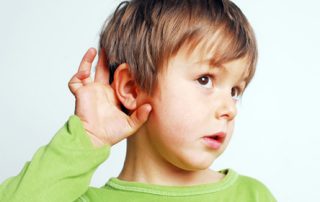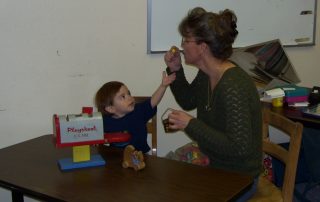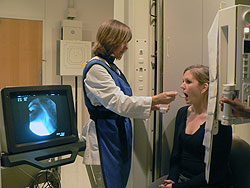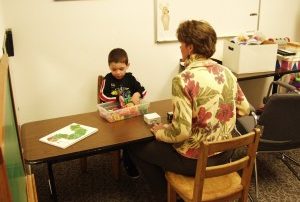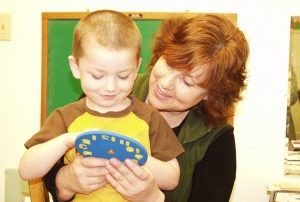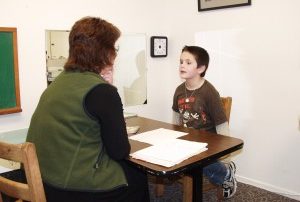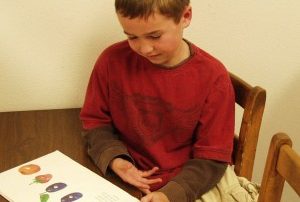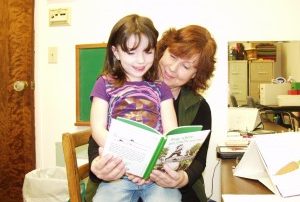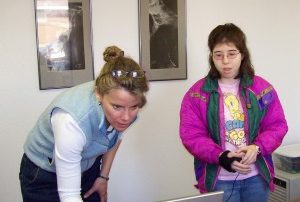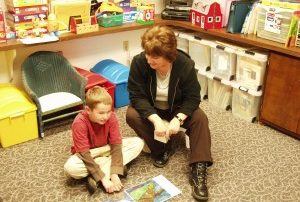Our Services
Southwest Rehabilitation provides speech therapy services to adults and children in the North Bend and Coos Bay area. Our services include a wide variety of pediatric treatment programs including language development, auditory processing, and therapy for children with Autism. Not to mention the Lee Silverman Voice Treatment Program, Stroke Rehabilitation, Vital Stim, Lessac Madsen Resonant Voice Treatment, Swallowing Therapy, and much more.
Adults
Accent Modification
Our certified instructor offers the Compton PESL program to individuals or groups in person or on-line with emphasis on improving pronunciation of American English. The 12-week program includes a comprehensive evaluation and 12 therapy sessions [...]
Accent Modification
Our certified instructors offer the Compton P-ESL program to individuals or groups in person or on-line with emphasis on improving pronunciation of American English. The 12-week program includes a comprehensive evaluation and 12 therapy sessions [...]
Videostroboscopic Evaluation of Voice
Videostroboscopy is a state-of-the-art technique that provides a magnified, slow-motion view of your vocal cords in action. It enables physicians to make an accurate diagnosis of conditions and diseases of the vocal cords, including masses or lesions, abnormal motion, inflammation, broken blood vessels, scarring and other disorders.
Tracheoesophageal Puncture Fittings
A doctor makes a small hole in the rear of your stoma leading to the esophagus. Once this puncture heals, a prosthesis is fitted and inserted into the opening. To speak, you occlude (cover) the stoma with your thumb or finger and simply force air through the prosthesis into the esophagus. This air movement vibrates the walls of the esophagus and you can create sounds and words
Fiberendoscopic Evaluations of Swallow
A flexible endoscope is a machine that consists of a long tube and a camera. During this examination the device is passed through one of your nasal passages to the back of the throat where passage of food and drink can be observed.
Modified Barium Swallow
A modified barium swallow (MBS) is a special x-ray that allows the doctor, called a radiologist who specializes in using x-rays, to check problems and the Speech Language Pathologist (SLP) to identify why you have trouble swallowing.
Augmentative Communication
Augmentative communication is an alternative way to help people with problems speaking. Devices such as computers or hand held devices can be ordered through your insurance company. Picture communication systems can also be made for those that can not operate a commuter.
Tracheostomy Tube Care
When the upper airway is damaged or doesn’t allow enough air to pass through to the lungs, some individuals are provided with tracheostomy tubes via a surgical procedure. We are able to assist patients with reducing speech and swallowing issues related to the presence of the tracheostomy tube. Assistance may include fitting of a speaking
Cognitive Therapy
After a head injury, thinking and problem solving can be affected. These skills are often referred to as executive functioning; planning, forethought, reasoning, remembering, sequencing, etc.
Swallowing Therapy
The goals of swallowing therapy are to reduce food and or liquids from going down the air pipe, make it easier to eat and swallow, and help you get the nutrition you need to stay healthy.
Lessac Madsen Resonant Voice Treatment
The LMRVT program is perfect for patients with a hoarse vocal quality. It is a step-by-step program perfect for the person whose voice feels strained and/or over-used.
Vital Stim
Vital Stimulation involves the placement of electrodes along the neck wall. A current is introduced in an effort to stimulate the muscles of the swallow mechanism.
Stroke Rehabilitation
Individuals suffering from a Stroke often experience word finding problems, slurred speech, memory issues, and sometimes difficulty communicating basic wants and needs…
Lee Silverman Voice Treatment Program
The LSVT program is an intense 1 hour a day, 4 week course that teaches people with Parkinson’s and other individuals with neurological impairments to develop the strength required to speak at normal loudness levels….
Children
Auditory Integration Therapy (AIT) by Berard
Some children have difficulty with processing information through the auditory channel, especially those with a history of ear infections, the autistic population, and children with learning disabilities. Auditory Integration Therapy (AIT) by Berard is a [...]
Infant Stimulation/Early Language
Language means putting our thoughts into words; ie., talking. Sometimes children are slow to talk or at risk of having talking problems because of an illness or injury. Our program provides a lot of activities to practice talking and…
Fiberendoscopic Evaluations of Swallow
A flexible endoscope is a machine that consists of a long tube and a camera. During this examination the device is passed through one of your nasal passages to the back of the throat where passage of food and drink can be observed.
Videostroboscopic Evaluation of Voice
Videostroboscopy is a state-of-the-art technique that provides a magnified, slow-motion view of your vocal cords in action. It enables physicians to make an accurate diagnosis of conditions and diseases of the vocal cords, including masses or lesions, abnormal motion, inflammation, broken blood vessels, scarring and other disorders.
Modified Barium Swallow
A modified barium swallow (MBS) is a special x-ray that allows the doctor, called a radiologist who specializes in using x-rays, to check problems and the Speech Language Pathologist (SLP) to identify why you have trouble swallowing.
Augmentative Communication
Augmentative communication is an alternative way to help people with problems speaking. Devices such as computers or hand held devices can be ordered through your insurance company. Picture communication systems can also be made for those that can not operate a commuter. It is truly amazing the technology that is available today!
Motor Speech Disorders
Sometimes children know what they want to say, but can’t move their mouth well enough for the sounds/words to come out clearly. Our therapist can evaluate the muscles of the mouth and, based upon the results, come up with an exercise program and/or strategies to improve speech sound production.
Cognitive Therapy
After a head injury, thinking and problem solving can be affected. These skills are often referred to as executive functioning; planning, forethought, reasoning, remembering, sequencing, etc. Our therapists are skilled in evaluating cognitive skills and then developing a treatment plan to help your child get back on track.
Swallowing Therapy
The goals of swallowing therapy are to reduce food and or liquids from going down the air pipe, make it easier to eat and swallow, and help your child get the nutrition he/she needs to stay healthy. Sometimes young children have problems graduating from the bottle to foods. Or the foods they eat are limited to only a few things.
Lessac Madsen Resonant Voice Treatment
Lessac Madsen Resonant Voice Treatment program is perfect for children with a hoarse vocal quality. It is a step-by-step program perfect used to teach youngsters how to use their voice without having to strain.
Pragmatic Language Disorders/Autism
Think of pragmatics as using words to “get what you want.” Some children (particularly the autistic population) have a hard time verbally manipulating others, in a nice way, to get what they want. There are rules for using our words. Children with a pragmatic language disorder need help with learning the rules.
Auditory Processing
Auditory Processing is making sense of what you hear. Sometimes children don’t know how to listen or can only pay attention for short periods of time. Our therapists, in conjunction with audiology, can test your child’s listening skills and then come up with a treatment plan to improve the “processing” of auditory information.
Articulation/Phonology
Articulation/Phonology Therapy focuses on teaching the tongue, lips and jaw to move in a precise fashion when making speech sounds. Sometimes children substitute, omit, and/or distort sounds. This can make their speech difficult to understand.


